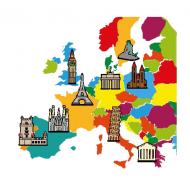Promoting Cultural Diversity through Literacy in Primary Schools
In today's diverse and interconnected world, it is essential for children to develop an understanding and appreciation for different cultures and traditions. By incorporating diverse literature and stories into the KS1 curriculum, we can create a more inclusive and welcoming learning environment that celebrates and values the diversity of our pupils.
In this blog, we will explore the importance of cultural diversity in primary schools and how it can enhance language skills. We will also discuss the power of engaging pupils with diverse literature and the benefits of exploring different cultures and traditions. Lastly, we will explore how empowering pupils to embrace their own cultural heritage can equip them with the skills to navigate a diverse society.
Importance of Cultural Diversity in Primary Schools
Promoting cultural diversity in primary schools is crucial for several reasons.
Firstly, it allows us to enhance language skills by exposing students to a variety of languages and cultural expressions. By exploring different cultures through literature, pupils can develop a deeper understanding of language structures and expand their vocabulary.
Secondly, incorporating cultural diversity in the curriculum helps to create an inclusive learning environment where all pupils feel valued and represented.
It allows us to celebrate the diversity of our pupils and foster a sense of belonging among them. Children from different cultural backgrounds can share their experiences, traditions, and perspectives, promoting empathy and understanding.
Engaging Pupils through Diverse Literature
One powerful way to promote cultural diversity is by engaging pupils with diverse literature.
By exposing them to stories and characters from different cultures, we can inspire them to embrace diversity and develop a broader worldview. Diverse literature allows children to see themselves reflected in the stories they read and exposes them to new and different experiences.
Through diverse literature, we can celebrate the richness of our pupils' backgrounds and help them develop empathy and understanding for others. It opens conversations about different cultures, traditions, and experiences, fostering a deeper appreciation for diversity.
Exploring Different Cultures and Traditions
Exploring different cultures and traditions is a fantastic way to expand pupils' world-view.
By learning about the customs, beliefs, and practices of different cultures, they gain a better understanding of the world around them. They learn to appreciate and respect different perspectives and experiences.
This exploration can be done through various activities such as cultural festivals, guest speakers, and virtual field trips. It allows pupils to engage with different cultural practices and traditions, fostering a sense of curiosity and appreciation for diversity.





Empowering Pupils to Embrace Their Own Cultural Heritage
In addition to exploring other cultures, it is equally important to empower children to embrace their own cultural heritage.
By valuing and celebrating their diversity, we can help them develop a strong sense of identity and pride in who they are.
This empowerment can be achieved through projects and assignments that encourage pupils to share their cultural background with their peers. It allows them to educate others about their traditions, language, and customs while promoting a sense of belonging and appreciation for their cultural heritage.
 Promoting cultural diversity through literacy in primary schools is vital for creating an inclusive and enriching learning environment. By engaging pupils with diverse literature, exploring different cultures, and empowering them to embrace their own cultural heritage, we can foster empathy, understanding, and appreciation for diversity.
Promoting cultural diversity through literacy in primary schools is vital for creating an inclusive and enriching learning environment. By engaging pupils with diverse literature, exploring different cultures, and empowering them to embrace their own cultural heritage, we can foster empathy, understanding, and appreciation for diversity.
Let's work together to create a more inclusive and welcoming learning environment where every child feels valued and represented. Together, we can equip our pupils with the skills to navigate a diverse society and foster a more harmonious world.
Ready to learn more? Read our blog: "Why is Literacy Important in Key Stage One?"
